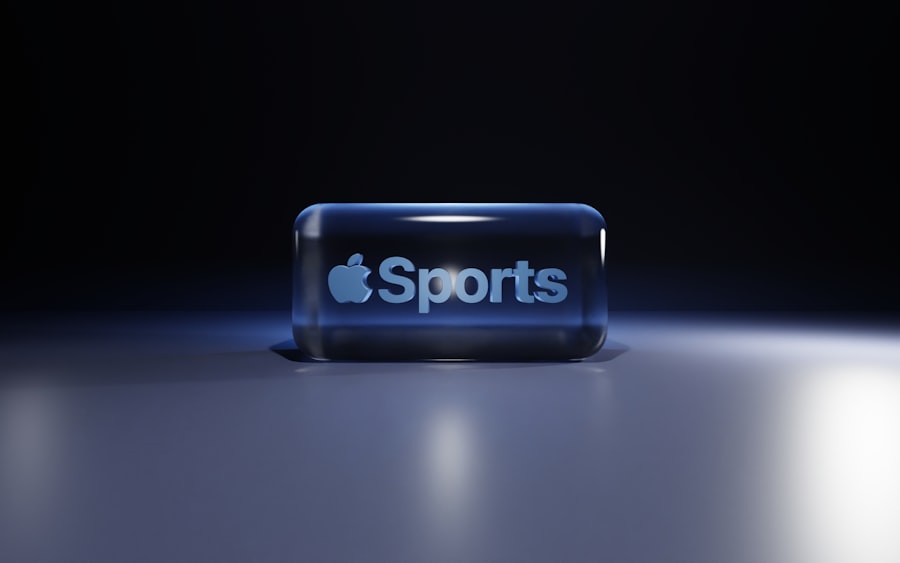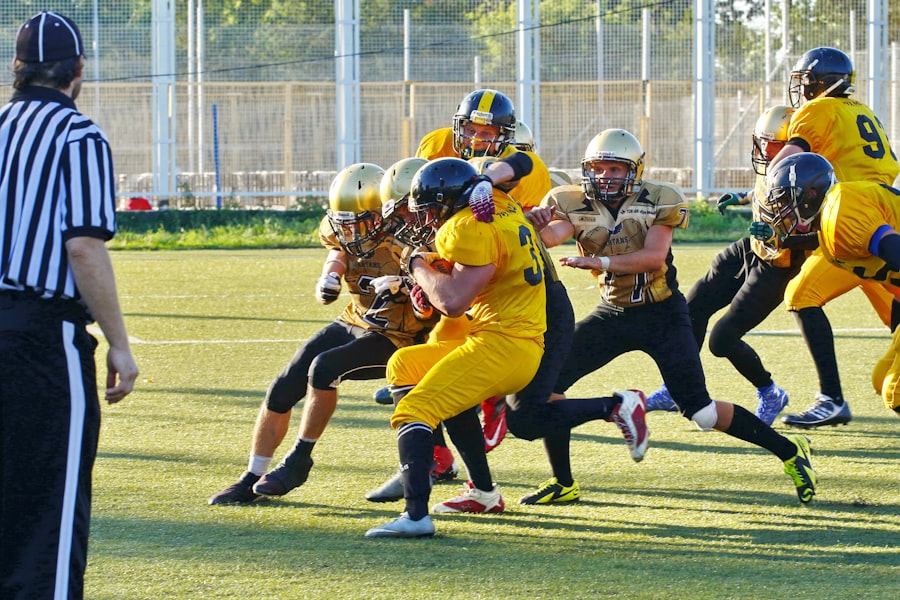The world of sports has evolved into a multi-billion dollar industry, where athletes are not just competitors but also brands in their own right. At the heart of this transformation are sport agencies, which serve as intermediaries between athletes and the various stakeholders in the sports ecosystem, including teams, sponsors, and media outlets. These agencies have become essential players in the sports landscape, providing a range of services that help athletes navigate their careers, maximize their earning potential, and build their personal brands.
The rise of sport agencies can be traced back to the mid-20th century, when the commercialization of sports began to take off, leading to the establishment of firms dedicated to representing athletes. Sport agencies operate in a complex environment characterized by intense competition and rapid changes in market dynamics. They are tasked with not only negotiating contracts but also managing public relations, marketing, and career development for their clients.
As the sports industry continues to grow, the role of these agencies has become increasingly significant, influencing everything from player salaries to endorsement deals. Understanding the intricacies of sport agencies is crucial for athletes who aspire to achieve success in their careers, as these firms can provide invaluable support and guidance.
Key Takeaways
- Sport agencies play a crucial role in managing and advancing athletes’ careers.
- They offer a range of services including contract negotiation, marketing, and career planning.
- Top sport agencies have a proven track record of success with high-profile athletes.
- Partnering with a sport agency can provide athletes with valuable industry connections and support.
- Athletes should carefully evaluate agencies to find the best fit for their career goals.
The Role of Sport Agencies in Athletes’ Careers
Sport agencies play a pivotal role in shaping the careers of athletes by acting as advocates and advisors. One of their primary responsibilities is contract negotiation, where they leverage their expertise and industry connections to secure the best possible terms for their clients. This includes negotiating salaries, bonuses, and other financial incentives that can significantly impact an athlete’s earning potential.
For instance, when LeBron James signed his four-year contract with the Los Angeles Lakers in 2018, his agency, Klutch Sports Group, played a crucial role in negotiating a deal worth $153 million. Such negotiations require not only a deep understanding of the market but also strong relationships with team executives and owners. Beyond contract negotiations, sport agencies also assist athletes in managing their public image and brand.
In today’s digital age, an athlete’s reputation can be influenced by social media presence, endorsements, and public appearances. Agencies often employ public relations specialists who work to craft a positive narrative around their clients, helping them navigate controversies and maintain a favorable public image. For example, when tennis star Naomi Osaka faced backlash for her decision to withdraw from the French Open in 2021, her agency was instrumental in managing the media response and supporting her mental health advocacy.
This multifaceted approach ensures that athletes not only excel on the field but also thrive off it.
Top Sport Agencies in the Industry

The landscape of sport agencies is populated by several prominent firms that have established themselves as leaders in the industry. One of the most recognized names is Creative Artists Agency (CAA), which represents a diverse roster of athletes across various sports, including basketball, football, and soccer. CAA has been instrumental in negotiating some of the largest contracts in sports history and has a reputation for its innovative approach to athlete representation.
Their extensive network allows them to connect athletes with lucrative endorsement opportunities and media ventures. Another major player is Wasserman Media Group, known for its comprehensive services that extend beyond traditional representation. Wasserman has built a reputation for its data-driven approach to athlete marketing and brand development.
They leverage analytics to identify trends and opportunities that can enhance an athlete’s marketability. Additionally, agencies like Octagon and Roc Nation Sports have made significant strides in recent years, focusing on personalized service and holistic career management for their clients. Each of these agencies brings unique strengths to the table, contributing to a competitive environment that ultimately benefits athletes.
Services Offered by Sport Agencies
| Service | Description | Typical Clients | Key Metrics | Benefits |
|---|---|---|---|---|
| Athlete Representation | Contract negotiation, career management, and endorsement deals for athletes. | Professional athletes, amateur athletes | Number of contracts negotiated, endorsement deals secured | Maximized earnings, career growth, legal protection |
| Marketing & Branding | Developing personal brands and marketing campaigns for athletes and teams. | Athletes, sports teams, leagues | Brand engagement rates, social media followers, sponsorship deals | Increased visibility, fan engagement, sponsorship revenue |
| Event Management | Organizing sports events, tournaments, and promotional activities. | Sports organizations, sponsors, venues | Event attendance, ticket sales, sponsor satisfaction | Successful event execution, revenue generation, brand exposure |
| Media & Public Relations | Handling media relations, press releases, and crisis management. | Athletes, teams, leagues | Media mentions, sentiment analysis, crisis resolution time | Positive public image, media coverage, reputation management |
| Sports Consulting | Advisory services on sports business strategy, operations, and development. | Sports organizations, clubs, governing bodies | Client satisfaction, project completion rate, ROI | Improved operations, strategic growth, competitive advantage |
| Legal Services | Contract law, compliance, dispute resolution related to sports. | Athletes, teams, agencies | Number of cases handled, contract disputes resolved | Legal protection, risk mitigation, compliance assurance |
Sport agencies offer a wide array of services designed to support athletes throughout their careers. Contract negotiation is perhaps the most well-known service, but agencies also provide legal assistance to ensure that all agreements comply with relevant regulations and protect the athlete’s interests. This legal support is crucial in an industry where contracts can be complex and laden with stipulations that may not be immediately apparent to an athlete.
In addition to legal services, sport agencies often provide marketing and branding support. This includes developing personal branding strategies that align with an athlete’s values and public persona. Agencies may also facilitate endorsement deals with companies looking to leverage an athlete’s popularity for promotional purposes.
For instance, when golfer Tiger Woods partnered with Nike early in his career, his agency played a key role in negotiating terms that would establish him as one of the brand’s most recognizable faces. Furthermore, many agencies offer financial planning services to help athletes manage their wealth effectively, ensuring long-term financial security beyond their playing days.
Success Stories of Athletes Represented by Top Sport Agencies
The success stories of athletes represented by top sport agencies are numerous and varied, showcasing the impact these firms can have on an athlete’s career trajectory. One notable example is Kevin Durant, who has been represented by Roc Nation Sports since its inception. Under their guidance, Durant has not only secured lucrative contracts with the Golden State Warriors and Brooklyn Nets but has also built a powerful personal brand through various endorsements and business ventures.
His partnership with Roc Nation has allowed him to expand his influence beyond basketball, venturing into entertainment and philanthropy. Similarly, Serena Williams’ relationship with her agency has been instrumental in her success both on and off the court. Williams has leveraged her platform to become a global icon, thanks in part to her agency’s strategic marketing efforts.
They have helped her secure high-profile endorsements with brands like Wilson and Gatorade while also supporting her entrepreneurial endeavors, such as her investment firm Serena Ventures. These success stories illustrate how effective representation can elevate an athlete’s career and open doors to new opportunities.
How Athletes Can Benefit from Working with Sport Agencies

Athletes stand to gain significantly from partnering with sport agencies due to the expertise and resources these firms provide. One of the primary benefits is access to industry knowledge that can help athletes make informed decisions about their careers. Agencies are well-versed in market trends and can offer insights into contract negotiations that an individual athlete may not possess.
This knowledge can be particularly valuable during pivotal moments in an athlete’s career, such as free agency or contract renewals. Moreover, sport agencies can help athletes build their personal brands through strategic marketing initiatives. In an era where social media plays a crucial role in shaping public perception, having a dedicated team focused on brand management can make a substantial difference.
Agencies often employ specialists who understand how to navigate digital platforms effectively, ensuring that athletes maintain a positive online presence while engaging with fans and sponsors alike. This comprehensive support allows athletes to focus on their performance while leaving the business aspects of their careers in capable hands.
The Impact of Sport Agencies on the Sports Industry
The influence of sport agencies extends beyond individual athletes; they play a significant role in shaping the broader sports industry as well. By negotiating high-value contracts and securing lucrative endorsement deals, agencies contribute to the overall financial landscape of professional sports. The competition among agencies drives up player salaries and creates a more dynamic market for talent acquisition.
This competitive environment benefits not only athletes but also teams and leagues that must adapt to attract top talent. Furthermore, sport agencies are increasingly involved in social issues within sports, advocating for diversity, equity, and inclusion initiatives. Many agencies have taken proactive steps to support underrepresented groups within athletics and promote social justice causes through their clients’ platforms.
This shift reflects a growing recognition of the responsibility that comes with being an influential figure in sports. As agencies continue to evolve and adapt to societal changes, their impact on the sports industry will likely expand even further.
Tips for Athletes Looking to Partner with a Sport Agency
For athletes considering a partnership with a sport agency, several key factors should be taken into account to ensure a successful collaboration. First and foremost, it is essential to conduct thorough research on potential agencies to understand their track record and reputation within the industry. Athletes should look for agencies that have experience representing clients in their specific sport or discipline, as this expertise can be invaluable during negotiations.
Additionally, athletes should prioritize finding an agency that aligns with their personal values and career goals. A strong rapport between an athlete and their agent can lead to more effective communication and collaboration throughout their career journey. It is also advisable for athletes to seek out testimonials or references from current or former clients of the agency to gain insight into their experiences.
Finally, athletes should be prepared to ask questions during initial meetings with potential agencies. Understanding the agency’s approach to representation, marketing strategies, and support services will help athletes make informed decisions about which agency is best suited for their needs. By taking these steps, athletes can position themselves for success as they embark on their professional journeys with the right agency by their side.



